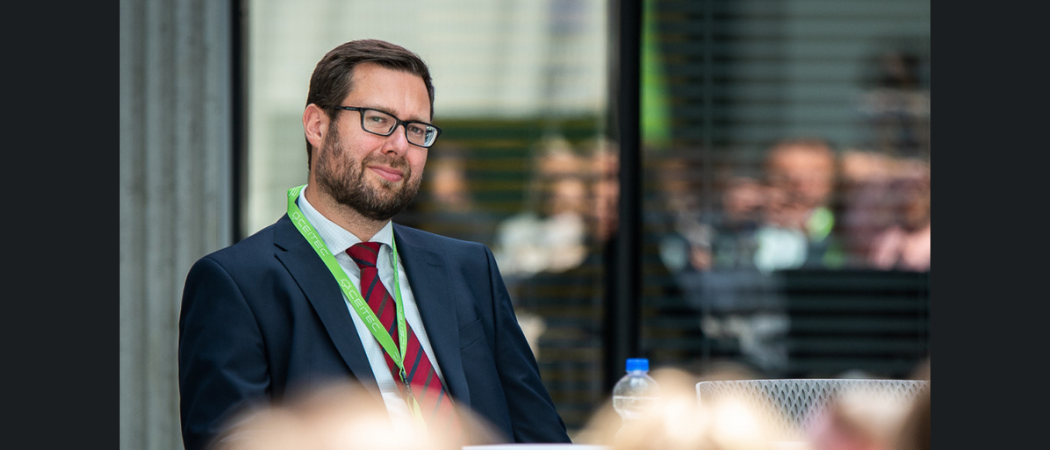A recent conference brought together representatives of both countries’ research communities and government officials, leading to talks of building closer ties

Jiri Nantl, former director of CEITEC MUNI, speaking at a conference in Brno on 12 June on strategic management in science. Photo: Alliance4Life
Czechia and Slovakia have a major opportunity to increase their research potential by working together more closely, a newly appointed deputy minister in Czechia’s education ministry has said.
“In both countries, financial stability and how to fund the best research infrastructures is an issue, and I think creating a bigger market for infrastructures from both countries and creating some division of labour would be a great opportunity,” said Jiri Nantl speaking after a 12 June conference on strategic management in science hosted by Central European Institute of Technology of Masaryk University (CEITEC MUNI) in Brno.
At the time of the conference, Nantl was director of CEITEC MUNI but has since moved into a government position.
Nantl said there is an almost one-way flow of Slovak students moving to Czechia for their studies but that research collaborations between the two countries are “more limited”. There are opportunities to work together on applied research as well. That is especially the case in health because “both countries need to modernise their healthcare systems, so that’s what we’re calling for,” he said.
“We have Austria nearby too, so I think over time this could become a very powerful science triangle in Europe,” said Nantl
The conference was organised by institutions from both sides of the border that are members of Alliance4Life, a partnership of life science institutions and universities from central and eastern Europe. It was pitched as an opportunity for these close neighbours to learn from each other on topics such as infrastructure sharing, research assessment reform, human resources practices in science and management of research institutions and universities.
Research funding concerns
Besides these more practical points, the issue of funding – or a lack of extra funding – was also discussed.
Czech Prime Minister Petr Fiala spoke at the event about the need to make changes to the management and funding of science, especially in education. “We are well aware that science needs not only financial support from the state but, above all, an overall change in the environment, rules and motivation," he said.
Nantl welcomed the fact that the prime minister ruled out decreasing the overall research budget in the country, but said that with inflation, even with the same amount of funding it still means “some form of stagnation”.
Part of the answer is doing better with what is available, Nantl said, with money often being directed towards costly “historic structures”. He cited the Czech process of state-appointed professorships, whereby the president of the country appoints new professors, as an example of this. He also talked about modernising support services at institutions and improving HR practices to bring them up to European norms. “The ability of management [at institutions] to restructure and to create space for new kinds of people based on open competition is essential,” he said.
Over in Slovakia, the country is currently in the process of an ambitious overhaul of its research and innovation landscape, supported with an injection of public money and funds from the EU’s COVID-19 Recovery and Resilience fund.
As part of its new national strategy for research, development and innovation 2030, approved at the end of March, public R&I spending will increase by an average rate of 14% per year until 2030, reaching around €1 billion by the end of the decade.
Michaela Kršková, recently appointed as the Slovakian government’s first chief innovation officer, was at the conference to speak about these reforms and to learn from the experiences of those in Czechia.
Exchanging experiences with the Czech research environment is an invaluable source of inspiration for us in this process," Kršková said.





 A unique international forum for public research organisations and companies to connect their external engagement with strategic interests around their R&D system.
A unique international forum for public research organisations and companies to connect their external engagement with strategic interests around their R&D system.